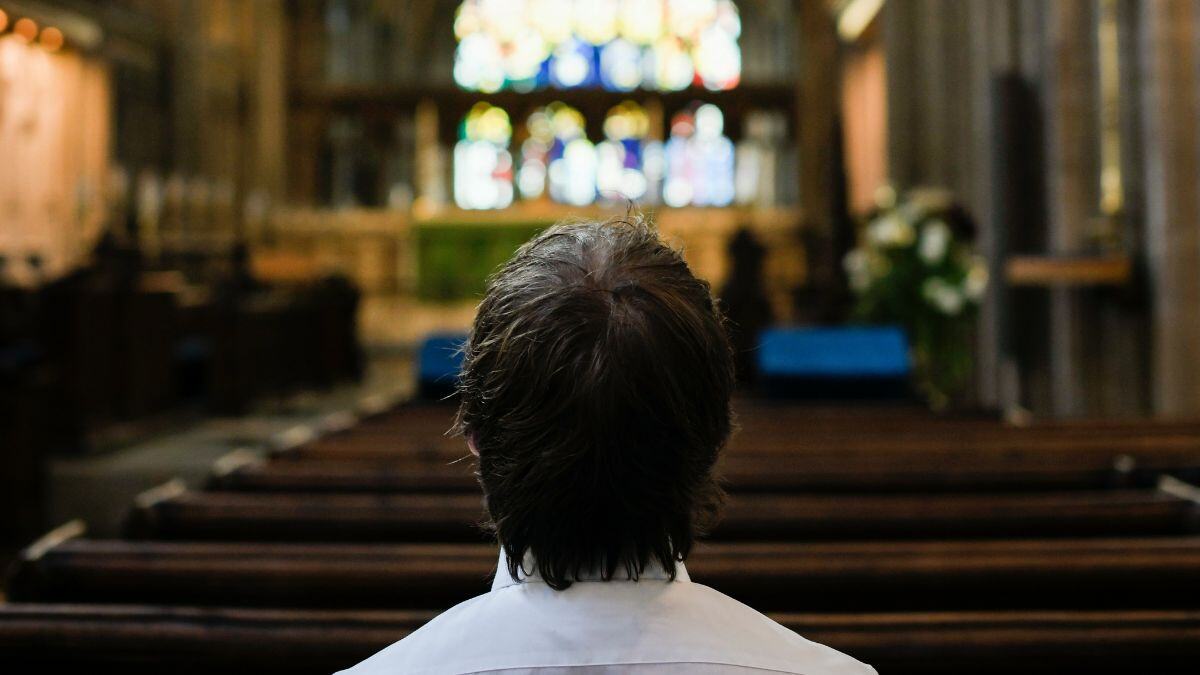Searching for God or for Nostalgia?
Authors: John Stonestreet and Dr. Timothy Padgett

Authors: John Stonestreet and Dr. Timothy Padgett
A few weeks ago, a self-described fitness enthusiast described life today this way:
“Work a desk job
Grind 9–6 Lift weights to feel something
Marry someone beautiful enough
Move to suburbs
Get a dog
Have 2 kids
Drive an American SUV to Costco on weekends
Buy a house you’ll never finish paying off
Call it happiness
Is this the dream? or just a life we were sold?”
The responses were varied. Many responded that, objectively speaking, the world—especially the Western part of it—is better off than it has ever been. One scientist noted that people used to live to an average age of 35, half of all kids died in childhood, even minor infections often led to death, and starving was a common human experience.
As my colleague Shane Morris observed, visit almost any old graveyard and it will be full of tombstones with only one year inscribed for both birth and death. Though miscarriages are still tragically common, deaths in infancy are increasingly rare. Only less than a century ago, nearly everyone would have had one or more siblings die in childhood. Today, our biggest health problems are from obesity, not starvation. Modern medicine, dentistry, technology, indoor plumbing, and all kinds of other things prevent and protect us from the diseases, calamities, and accidents that proved fatal in previous generations.
On the other hand, a different doom and gloom, the kind reflected in the X post above, still resonates with many. In fact, it sounds a bit like a work of poetry written almost 3,000 years ago by a man of wealth and power who learned that “having it all” isn’t all it is cracked up to be. His words are often quoted, perhaps most famously by the Byrds in their song, “Turn, Turn, Turn” and The Dave Matthews Band in “Tripping Billies.”
Ecclesiastes is easily the most depressing book in Holy Scripture. The bulk of the text is a meditation on how meaningless life is and then you die. The first chapter immediately declares that life is pointless.
“Vanity of vanities, says the Preacher,
vanity of vanities! All is vanity.
What does man gain by all the toil
at which he toils under the sun?
… I have seen everything that is done under the sun, and behold, all is vanity and a striving after wind.”
“The Preacher” has tried a life of wisdom, a life of pleasure, and a life of wealth. None was satisfying. Everyone dies. All seems pointless. Everything we attempt to live for or build our lives around turns to dust. Within just a few generations, no one will remember our names.
With language stark and hopeless, the Preacher sounds like someone who has lost faith in God. However, the words describe life without God. The things he listed—money, pleasure, wisdom—none are bad. They’re blessings given by God for our use and joy. But none will bring us the peace, meaning, or fulfillment for which we long.
Much later, in his Confessions, Augustine of Hippo would describe why. “[Y]ou have made us for Yourself, O God, and our hearts are restless till they find their rest in Thee.” When people complain this world is broken and unfulfilling, they miss that God’s good gifts are instead meant to point to the Giver of the gifts. They cannot fulfill the human heart because the hole in it is God-sized, not stuff-sized. We were made for bigger things. We were made for God.

Authors: John Stonestreet and Dr. Timothy Padgett

Authors: John Stonestreet | Dr. Timothy D. Padgett In a recent video posted on X, a Muslim cleric declared that the days of the West are numbered....

Authors: John Stonestreet | Dr. Timothy D. Padgett